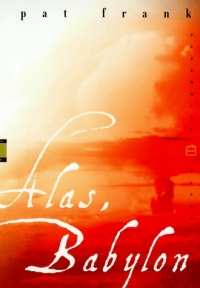 The piece begins as a teacher strikes Harper Lee's To Kill a Mockingbird from the curriculum. On first read, I felt Lee, and the sum of twentieth-century American literature, had been slighted. Teaching Harry Potter may have literary merit, and as Literary and Cultural Studies demonstrated at William and Mary, you can analyze any creative output from Ulysses to The Lost Symbol. But all those allowances detract from what our children Should Learn.
The piece begins as a teacher strikes Harper Lee's To Kill a Mockingbird from the curriculum. On first read, I felt Lee, and the sum of twentieth-century American literature, had been slighted. Teaching Harry Potter may have literary merit, and as Literary and Cultural Studies demonstrated at William and Mary, you can analyze any creative output from Ulysses to The Lost Symbol. But all those allowances detract from what our children Should Learn.Mmm, capital letters. Irony sighting. Yes, I'm suspicious of pre-administered educational paths. As any teacher who's constructed lesson plans knows, things go awry. Time flies by, students ask extra questions or light their pencil sharpeners on fire, and soon enough, the syllabus goes out the window. It's okay because the classroom is an interactive learning environment, 50 percent preparation, 50 percent inspiration. (Plus an additional, a-mathematical dollap of perspiration.)
Still, AP and IB tests, SATs and ACTs, IOWA and Stanford tests are a necessary evil. How else to quantify the essentially qualitative process of absorbing knowledge? We need some strictures, and so we need some books that are classics and will always be taught.
 Or will they? When everyone else downed William Golding's Lord of the Flies in tenth grade, my English class covered Pat Frank's Alas, Babylon. Not in your high-school library? Frank's novel, not as literary or eloquent as Golding's, nonetheless bravely depicts a post-apocalyptic society of scavengers reconstructing their nuclear-smited world. An alternative to the standard harangue on civilization, but still a heady read, and poignant that year. We read Alas, Babylon in the same classroom where we sat eight years ago on a September afternoon, watching replays of the World Trade Center collapse, and verbalizing the emotions we'd felt all day long.
Or will they? When everyone else downed William Golding's Lord of the Flies in tenth grade, my English class covered Pat Frank's Alas, Babylon. Not in your high-school library? Frank's novel, not as literary or eloquent as Golding's, nonetheless bravely depicts a post-apocalyptic society of scavengers reconstructing their nuclear-smited world. An alternative to the standard harangue on civilization, but still a heady read, and poignant that year. We read Alas, Babylon in the same classroom where we sat eight years ago on a September afternoon, watching replays of the World Trade Center collapse, and verbalizing the emotions we'd felt all day long.Context is everything. Reading recent novels during their zeitgeist may pull more students in, unearth more cultural relevance. Initially, I thought, "everyone should read To Kill a Mockingbird," and indeed we can't let our children forget. But one novel is a mere ripple in an ocean of literature. There are technologically newer ways to let kids read, and why shouldn't they? Reading online is not the same, and I don't believe that the Internet will pull people into printed books. Too much light and sound; skimming the surface of online writing is inevitable. (If you did read the Times article, I reckon you sped through it. Even took a breather on Perez Hilton during the page jump.) But why say reading must be this, and knowledge must be that?
Literature is not ours. Language is not owned by us. We can only subjectively assess and choose, in a given time, in a given school, what is apropos. Now it doesn't mean eighth-graders should substitute Captain Underpants for Shakespearean tragedy. Let's not get irresponsible. There's a reason for the canons already in place, and perhaps there's nothing wrong with reminding ourselves why.
In ninth grade English, a friend raised her hand and said she hadn't liked Mockingbird (i.e., committed blasphemy). "Why do we have to read it? It's the same story we see all the time." And I remember the teacher said, "Maybe that's why it's important. We don't want to forget it."
1 comment:
Nice thoughts. My only complaint about the use of canonized texts is that we seem to hold them so high on a pedestal. Rather, I think we should encourage young readers to be critical thinkers, even of the canon.
Post a Comment